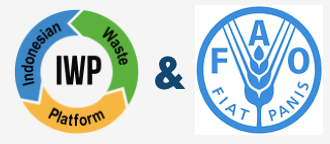
We collaborate with the Food and Agriculture Organization of the United Nations (FAO) on the ALDFG Global Survey.
Background : Over the past decade, there has been increasing recognition of the need to address adverse ecological and socioeconomic effects of abandoned, lost and discarded fishing gear (ALDFG). There is extremely limited understanding of the life cycle and end-of-life management of fishing gear, trends in the magnitude of ALDFG entering oceans, and the effectiveness of interventions to avoid, minimize and remediate the production and adverse effects of derelict gear (GESAMP, 2021 Sea-based Sources of Marine Litter).
In light of the adverse effects of ALDFG, and the gap in knowledge of rates and magnitudes of derelict gear production, the Committee on Fisheries (COFI) recommended that the Food and Agriculture Organization of the United Nations (FAO) expand work to fill this priority knowledge gaps. The FAO Fishing Technology and Operations Team (NFIFO) has developed standardized forms for fisher surveys to collect information on the causes and rates of production of ALDFG and established a centralized portal for ALDFG fisher survey data. This FAO ALDFG fisher survey programme enables the accumulated ALDFG data to be pooled so that broad, regional- and global-level analyses can be conducted, such as on gear-specific causes, rates and raised magnitudes of production of ALDFG.
Our contribution is surveying in island subsistence fishing communities in and around Komodo National Park. Our survey will support FAO to fill in data gaps and supports us in our work to address and reduce ALDFG in these fishing communities.
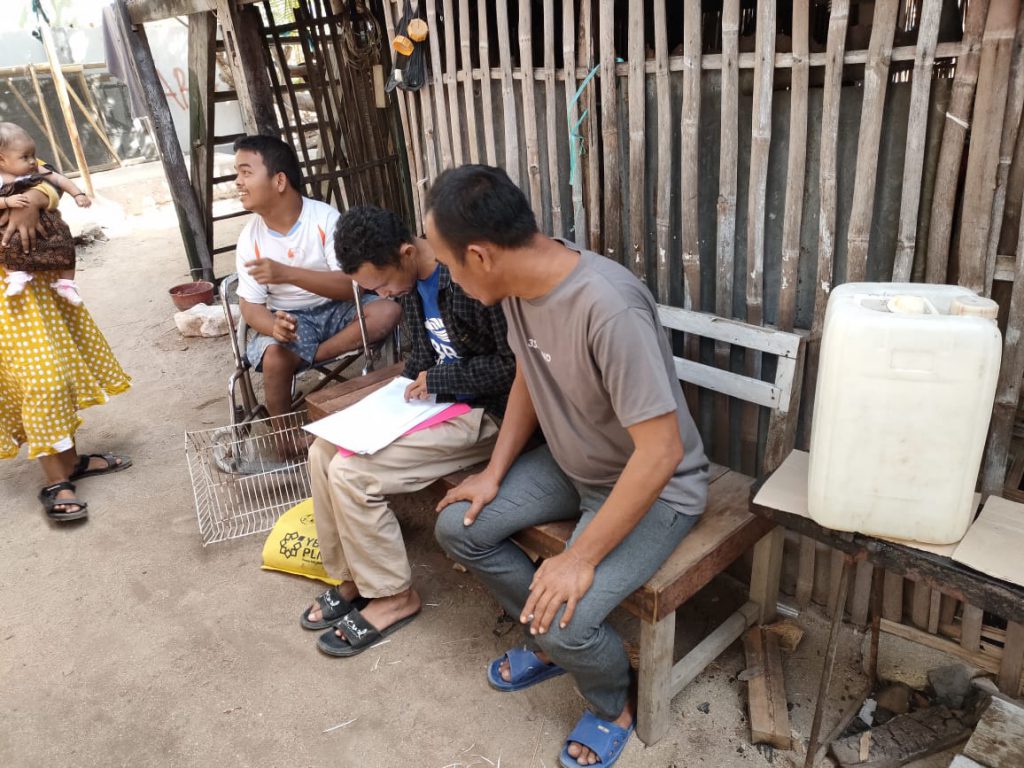
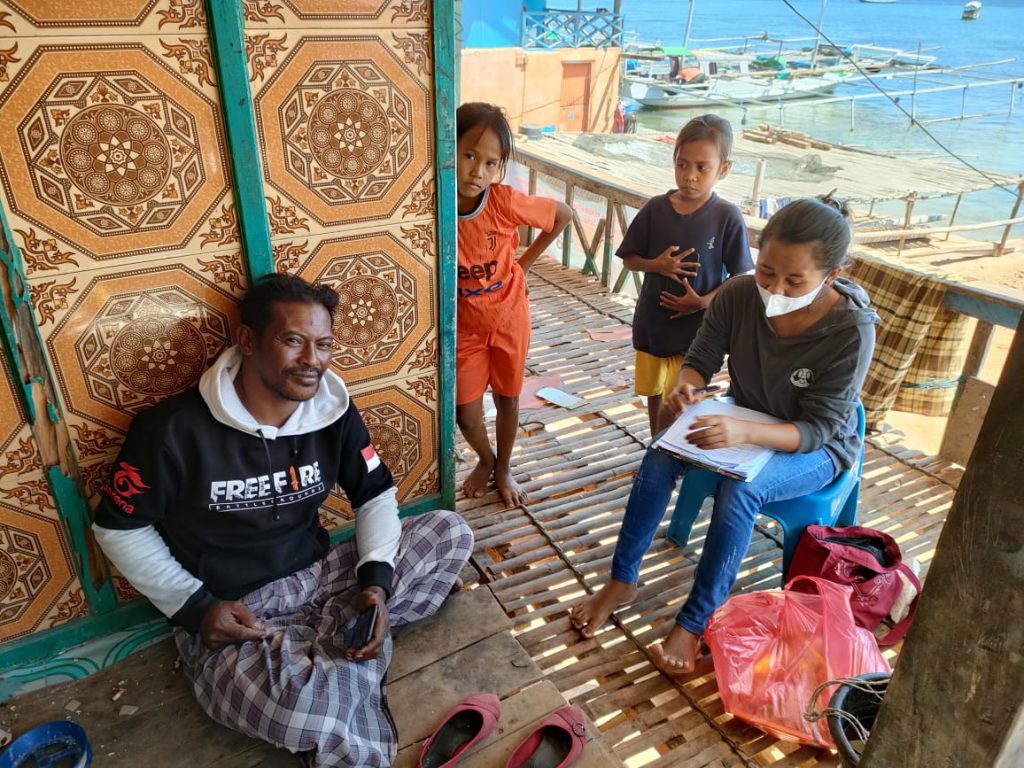

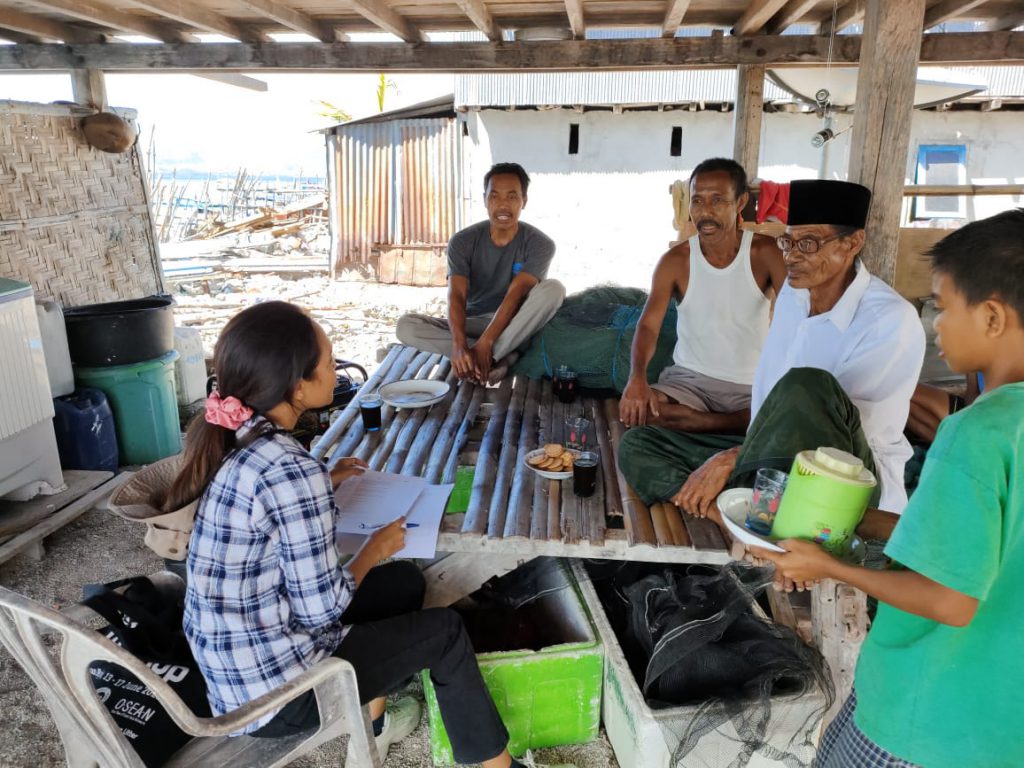

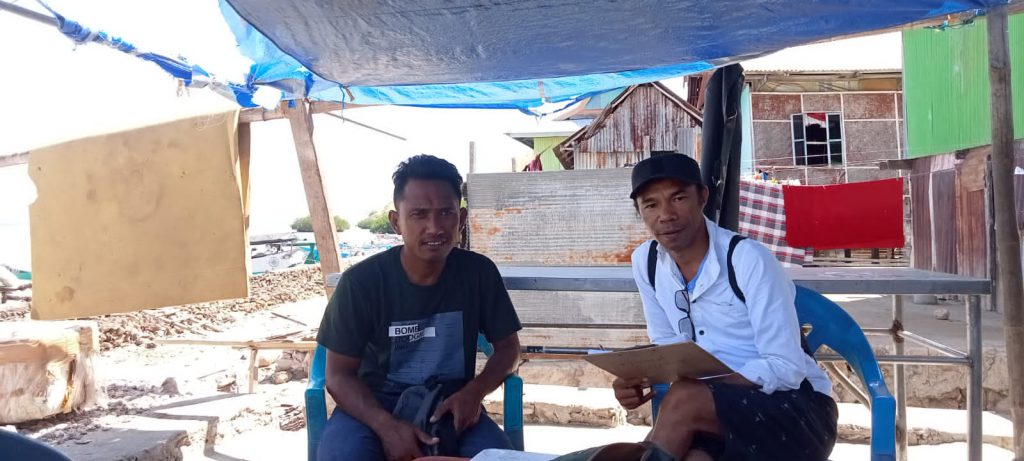
Single-use plastic used in subsistence fisheries
Fishermen use ice packed in single-use transparent plastic to cool their fish catch when they are out at sea. In Labuan Bajo 20.000 ice bags are sold per day to fisherman, fishmongers in local fish markets and fish trade transports to markets on the mainland of Flores. The bags are not collected. They are discarded directly dumped into the sea or dumped on land.
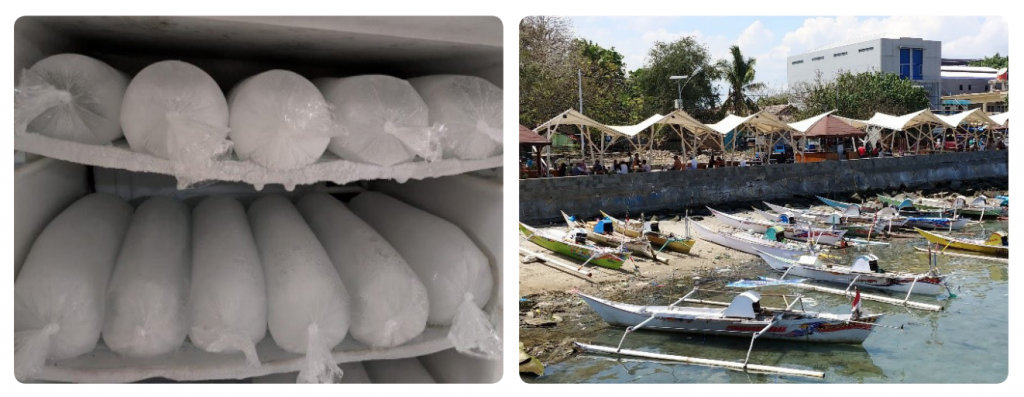
The bags are found in different levels of the water column and eventually part end up on beaches. In the water column the bags resemble jelly-fish; the world’s oceans jellyfish are frequently consumed by a diverse range of marine predators including fish, birds, turtles, and various invertebrates including octopus, sea cucumbers, crabs, and amphipods; Feeding on jellyfish makes marine predators susceptible to ingestion of plastics.
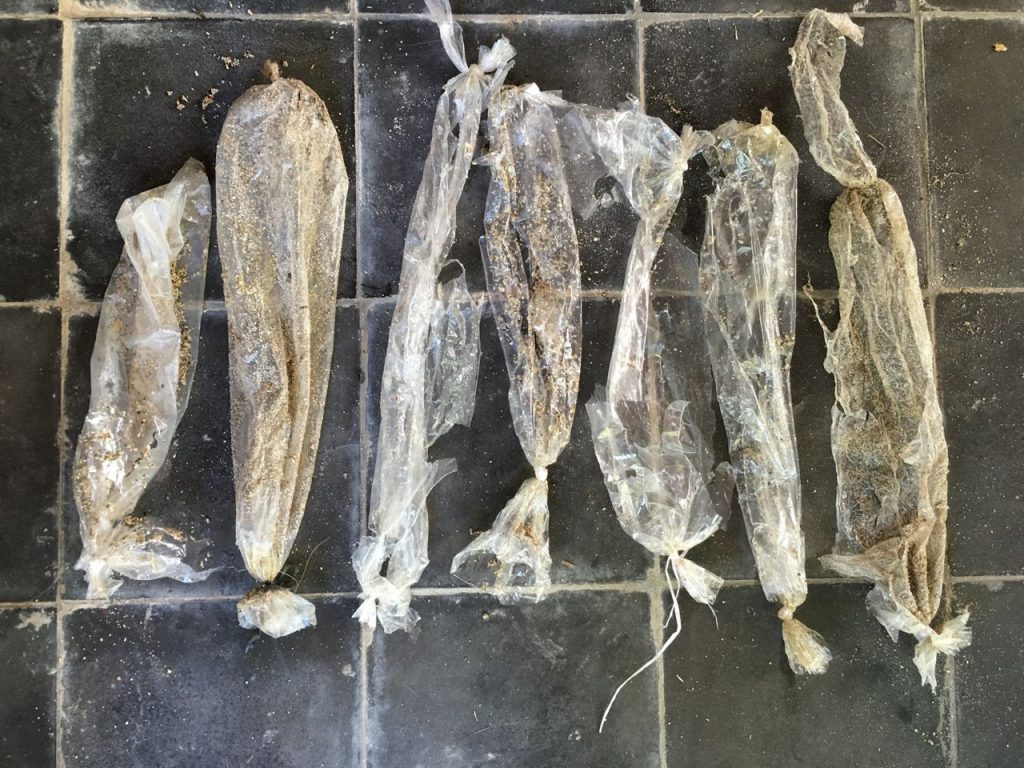
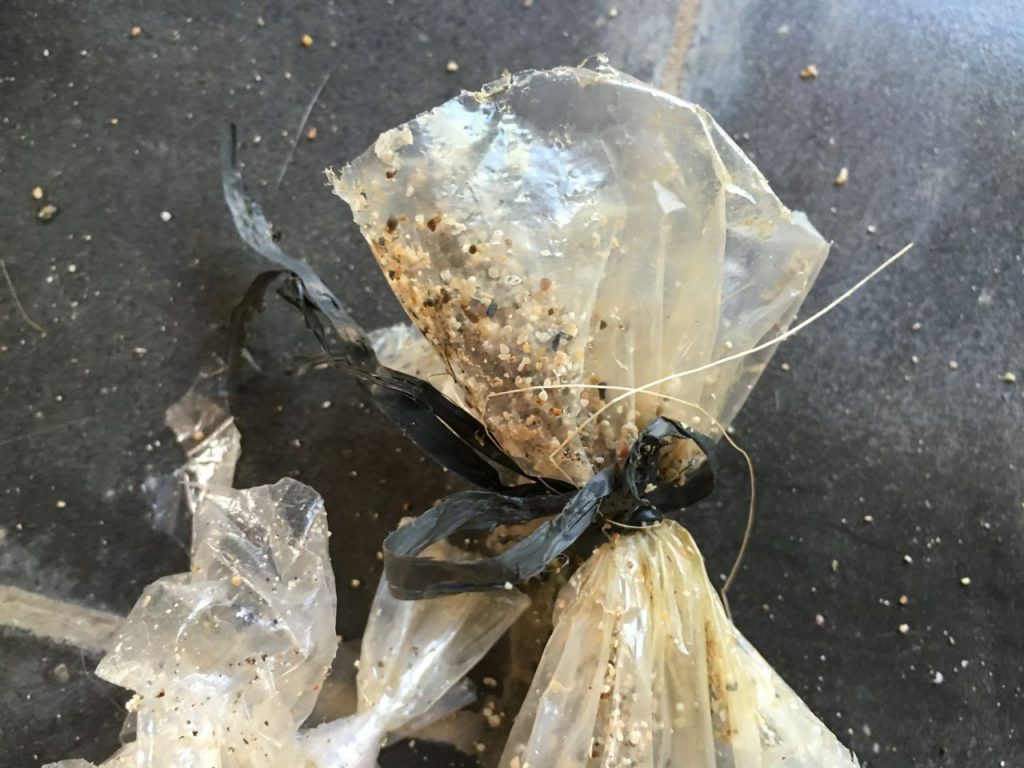


Campaign brochure
Feel free to download and share in fishing communities – please help spread the awareness
